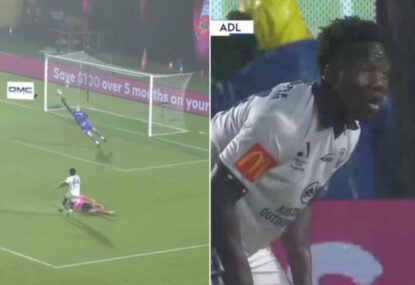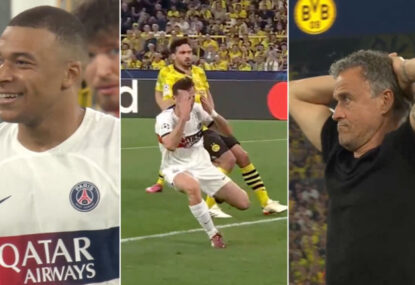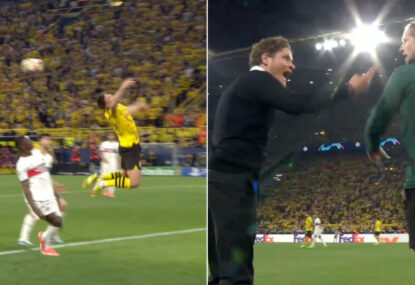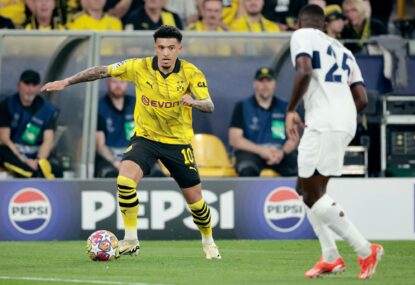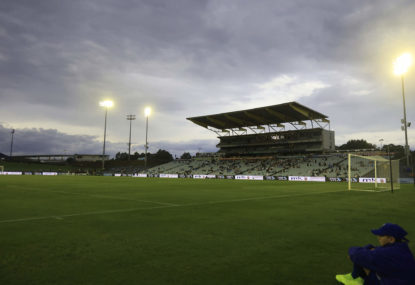This year’s award is yet again entirely telegraphed as a last crowning glory for Lionel Messi with the changes to the award even being tailored to include last year’s World Cup. Is there actually any genuine merit to the award?
The Ballon d’Or is a rather bizarre quirk of global football, a highly coveted individual bauble in what is the most team of team sports.
Going all the way back to its previous guise as ‘European Footballer of the Year’, you can make arguments for and against the various winners and runners up and no one can question the absolute absurdity of the performance levels and statistics of Cristiano Ronaldo and Messi for well over a decade.
Where the whole thing falls apart, however, is what the actual criteria are for being named the winner – other than seemingly playing for Real Madrid or Barcelona.
2021 and 2018 provide perfect illustrations of inconsistencies pertaining to this award.
2021 (and 2020), the curious case of Robert Lewandowski.

(Photo by Lars Baron/Getty Images)
With the continued and infinite wisdom of footballer’s rulers, no award was given in 2020 despite there still being plenty of football.
Whilst Lewandowski isn’t possibly the most aesthetically pleasing footballer, very few players have been effective as he over the past decade. In ’20 and ’21, he was in his very pomp, winning silverware and ticking off records and landmark aplenty as the Polish hitman continued to rampage up top for Bayern. And then Messi was handed the Ballon d’Or.
Now, Messi had an excellent end to the 2020-21 season for Barca (who did not win the league) and won the Copa America with Argentina. He did also however endure a miserable start to his career at new club PSG. He even referenced Lewandowski in his acceptance speech. Was Messi still the world’s greatest player in 2021? Possibly, probably.
2018’s award, of course, went to Luca Modric, the first winner who wasn’t either Ronaldo or Messi since Kaka in 2007. Modric was 33 at the time of the award. Now, how good was Modric’s season?
Players like the Croat rarely win personal awards, their metronomic consistency and ability to make the game so simple rarely catch the eye. There can, of course, be no doubt that the Croation playmaker is a genius of his type, and he had a sterling year in 2018 winning the Champions League with Real and playing a large part in steering Croatia to their first World Cup Final.
Ronaldo and Antoine Griezmann made up the podium positions. Ronaldo won the Champions League alongside Modric, and Griezmann lifted both the World Cup with France and La Liga with Atletico Madrid.
Now whilst Messi didn’t trouble the Ballon d’Or scorers in 2018 particularly, a young starlet by the name of Kylian Mbappe had an amazing year; he tore up Ligue 1 either side of the World Cup as a teenager and then there was the World Cup itself.
An explosive and match-winning performance against Messi’s Argentina in the round of 16 and a 25-yard finish in the final. He came fourth in the voting.
Who was arguably the best footballer on the planet in 2018? Lionel Messi, most people would say.
I am not suggesting for a moment that either Modric in ’18 or Messi in ’21 were not worthy winners of the award.
What is questionable is how the award is decided both in terms of voting and what the criteria are meant to be.
If we look at the 2018 awards, they would appear to be highly weighted toward the fact that the top three all won big team prizes.
Griezmann finished 17th and 18th in the 2017 and ’19 voting respectively. In Modric’s case in 2018, was he a better player than Ronaldo in 2018? Probably not but he got to the WC final, Ronaldo didn’t.
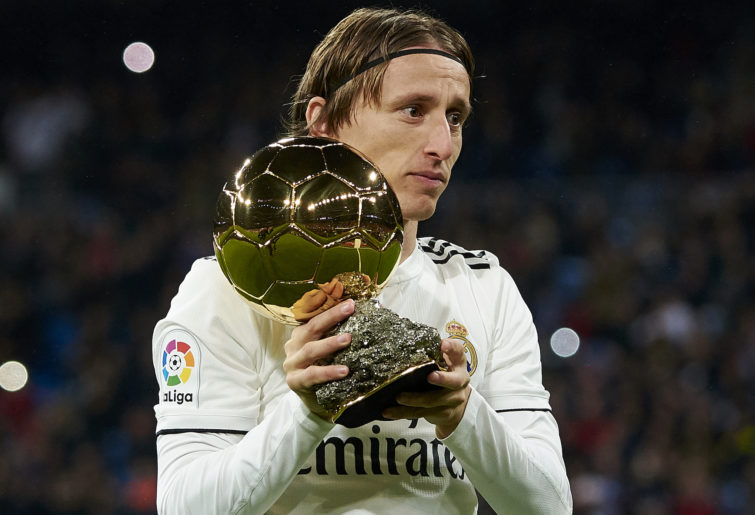
Luka Modric shows off last season’s Ballon D’or award. (Photo by Quality Sport Images/Getty Images)
So, should Griezmann have won the the 2018 award by the criteria? Quite possibly but he plays for Atletico and not Real.
Messi’s ’21 award over Lewandowski would appear to hinge on the fact he won the Copa America finally with Argentina.
The 2014 voting makes for slightly bizarre reading, also. Ronaldo had been in amazing form but was hampered by injury for a good part of that year. He won the Champions League with Real, scoring in the Final, but was eliminated with Portugal in the WC group stage.
Messi had a form (by his superhuman standards) and injury-blighted season with Barca and whilst Argentina limped to the World Cup Final, Messi had a poor tournament, only flickering and hinting at his talents. He finished second in the voting.
Toni Kroos won the Bundesliga with Bayern, won a move to Real and won the World Cup with Germany. He received 1.43 per cent of the vote, finishing ninth behind James Rodriguez. So, are we heavily weighted toward big team prizes, after all?
One other curiosity and large bug bear is that we always seem to know the winner months in advance. This year we are told it will be Lionel Messi with the criteria (as mentioned at the beginning) being changed to include last year’s World Cup. How wonderfully convenient.

(Photo by Gustavo Pagano/Getty Images)
The fact that Messi has done absolutely nothing of note in 2023 and is now playing in the MLS (enjoying some great recent cameos, granted) seems not to matter a jot. In fact, with a World Cup coming in North America, it actually makes a lot of sense that Messi will win the award. A lack of transparency regarding voting, possibly?
If France had scored more penalty kicks than Argentina in that Qatar Final, would Messi still be the winner this year or would it be Mbappe? Does this mean the outcome of a penalty shootout can decide the Ballon d’Or?
I can recall multiple years when the award was essentially called months before ceremony – also wholly incorrect as football that should qualify and be included in voting selection is still being played.
Modric in ’18, Messi ’21, Benzema ’22, Cannavaro ’06, Ronaldo ’02, Figo ’00, I can clearly recall all these essentially being handed out in August. So how does the actual ‘voting’ take place, one must question?
The last part of this querying of football’s great annual back slap is the clubs and league that the players play for and in.
If you put an asterix next to Messi’s ’21 win given he started the year with Barca, 2008 is the last time a player not just outside La Liga but outside of Real or Barca won the Ballon d’Or.
Now, it’s hard to argue with the dominance of Ronaldo and Messi, two of the absolute greatest players of all time.
But in that time, we have also had phenomenal individual and club performances from Bayern, Liverpool and Manchester City. City and Liverpool have had a player in the top three once each and Bayern three times.
Mohamed Salah has come fifth twice. Kevin De Bruyne made the top three once, Lewandowski we have covered.
Erling Haaland has had the most incredible start to his Manchester City career and he may well have plenty of Ballon d’Ors to come.

(Photo by Charlotte Wilson/Offside/Offside via Getty Images)
In 2023, he has won the league, Cup and Champions League and scored an absurd amount of goals but he will not win it this year, we are told. Because of something Lionel Messi did over the period of four weeks in 2022.
There is no doubt that there is a place for the Ballon d’Or, an individual award in the most team of team sports as again previously mentioned.
What would be wonderful, however, is some transparency over the voting process, including how much relevant football the judges watch, what the criteria are, and an end to the award being leaked and unofficially declared months in advance.
As ever, football can do much much better than this.

































































































